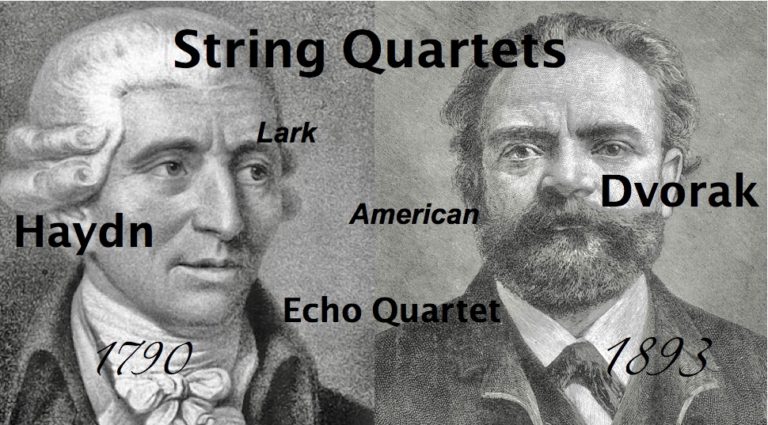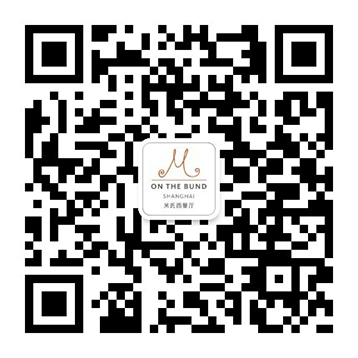On November 26th at 4:00PM at Glam we will be treated to two of the most beloved string quartets in the whole chamber music repertory: Joseph Haydn’s “Lark Quartet” and Antonin Dvorak’s “American Quartet”.
| Ticket Type | Event Details | Price | |
| Adult | November 26, 2017 at 4:00 PM | ¥ 85.00 CNY | |
| Student | November 26, 2017 at 4:00 PM | ¥ 40.00 CNY |
Joseph Haydn is lovingly known as Papa Haydn by composers and musicians. Although he had no children of his own (that we know of), he is widely considered as the “father” of the symphony, the piano trio and the string quartet. These three genres sprung up in the mid-18th Century at the end of the Baroque and beginning of the Classical eras and Haydn was the central influence in their development.
Haydn wrote over eighty string quartets and they span most of his musical life from his thirties until his late sixties. The string quartets thus read like a textbook of the musical development of this great composer. On November 26th we will hear what is arguably the most popular of his string quartets, the “Lark”. Like most of the nicknames of Haydn’s works, the name “Lark” was given by his publisher in order to increase sales: “Lark” was easier to remember than Opus 64, number 5! The “Lark” was included in the very last group of six quartets (Opus 64) written before Haydn went on his first trip to London. The London trip, where Haydn heard his quartets played in concert halls rather than in more intimate chamber settings (like Glam!), brought about a fundamental change in Haydn’s compositional style. Because of the acoustical requirements larger halls, his quartets became more demonstrative and concert-like. Up to this point, Haydn’s quartets had been more “conversational”, intimate exchanges–sometimes serious, sometimes witty–between the four instruments. The “Lark” is one of the last, and one of the greatest, examples of this earlier style.
If Joseph Haydn was a musical “father”, we might call Anton Dvorak one of his musical “grandchildren”. After all Haydn and Dvorak were born in close proximity in what would later become the Austria-Hungarian Empire, and they both had an strong affinity for folk music–although Haydn’s interest was purely musical and Dvorak’s more nationalistic. Closing the gap even more was the fact that Dvorak was one of the later Romantics, like Brahms, who felt that the early Romantics had gone too far in their move away from the classic tradition. Dvorak therefor endeavored to preserve the classical forms and genres of Haydn, Mozart and Beethoven, like the string quartet, while preserving at the same time his romantic élan. We can easily see the successful result of Dvorak’s efforts in the American Quartet that we will hear on November 26th. If we simply look at the names of the movements, we would not be able to say really that the quartet was not one by Haydn. Listening is another matter with Dvorak employing the longer, soaring melodies of the Romantics as opposed to the shorter motifs of the Classicists. Coincidentally, both quartets both make references to birds. The Haydn of course has the lark singing away at the very beginning of the first movement. Dvorak saves his bird, the American scarlet tanager, for the third, Scherzo movement. The scarlet tanager used to wake Dvorak up very early in the morning when he lived for a summer in Iowa in the United States and he would curse it as that “damned bird”. That damned bird has now achieved immortality!
Our musicians for the November concert are the award-winning Echo Quartet from the Shanghai Conservatory Middle School. As all regular attendees of the Glam Chamber Music Series know, these middle schoolers are young masters who play at an absolutely professional level far beyond their years.
If you would like to familiarize yourselves with the music before the concert, please check out these Youku sites:
Haydn: https://www.youtube.com/watch?v=4uYxn1M_O-4
Dvorak: https://www.youtube.com/watch?v=_b_rwtDlUXA
I look forward to seeing you all on November 26th for this exciting performance!
Bob Martin




